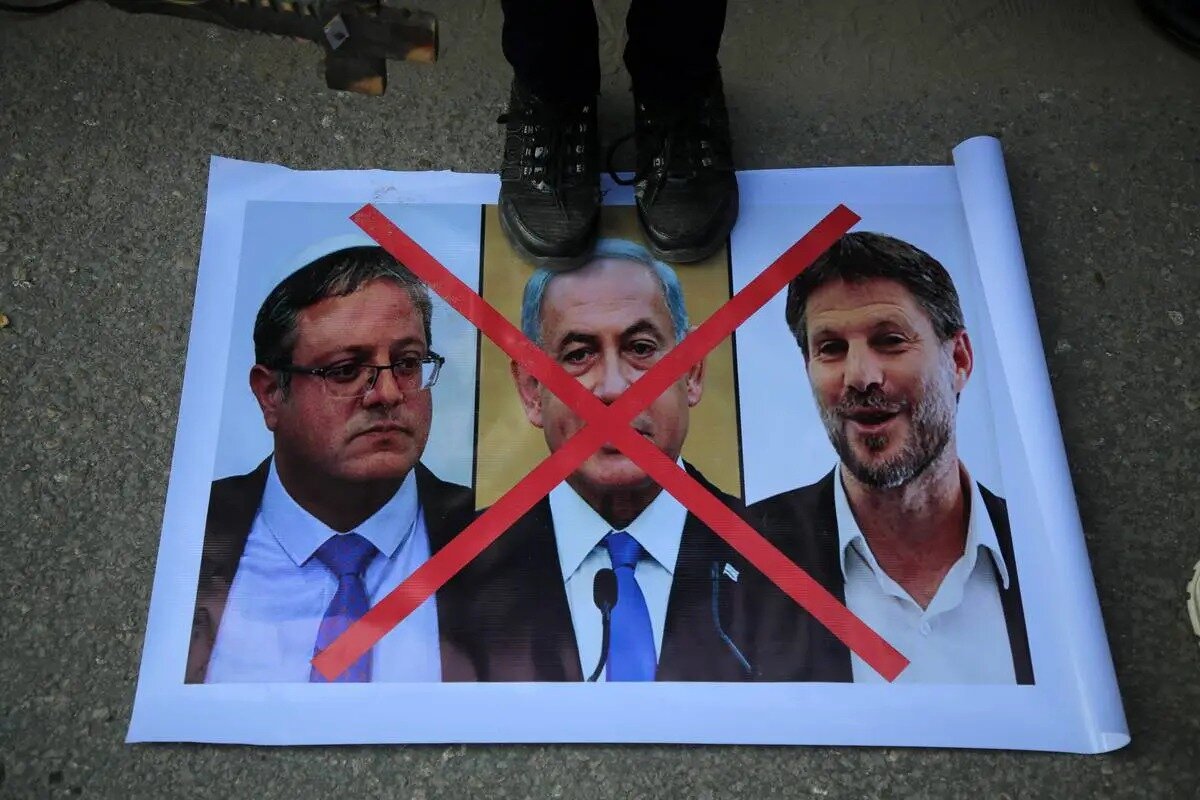Battlefield failures cost Netanyahu’s coalition dear

TEHRAN- Cracks are widening in the Israeli coalition cabinet as rifts continue to develop between Prime Minister Benjamin Netanyahu and his far-right ministers over the Gaza war.
Far-right National Security Minister Itamar Ben-Gvir has threatened to withdraw support from Netanyahu’s coalition unless the Israeli army launches a ground offensive in Rafah.
“If the prime minister decides to end the war without a large-scale offensive in Rafah to defeat Hamas, he will not have a mandate to continue serving as prime minister,” Ben Gvir wrote on X.
Ben-Gvir, who heads the far-right Jewish Power party, is a key member of the Netanyahu-led coalition. Without his party’s support, Netanyahu would lose the majority in the Knesset.
His comments came after a new round of talks was held between Israeli and Hamas representatives in the Egyptian capital over a potential ceasefire.
Apart from Hamas negotiators, senior Israeli officials, CIA Director William Burns and Qatar’s Prime Minister Sheikh Mohammed bin Abdulrahman bin Jassim Al Thani participated in the talks in Cairo, according to Israeli media.
On Sunday, Israel said it had withdrawn its ground troops from Khan Younis in southern Gaza after months of fierce fighting.
The Israeli troop pullout of Khan Youn and ceasefire talks with Hamas in Egypt also drew strong backlash from far-right Finance Minister Bezalel Smotrich who summoned his party for urgent consultations in the Knesset.
He voiced his anger at "reports over a general deal to end the war without defeating Hamas” and “reports of progress in the negotiations” in Cairo.
Netanyahu’s coalition could collapse if the two far-right ministers drop their support for the embattled prime minister.
It remains unclear what the Khan Younis pullout means for Israel’s plans to invade Gaza’s southernmost city of Rafah.
Netanyahu has repeatedly vowed that the Israeli army will carry out a ground operation in Rafah to “destroy” Hamas.
Most of Gaza’s 2.3 million population has fled to Rafah under the Israeli army’s orders in the wake of the regime’s incessant strikes across the territory. Many displaced people in
Rafah live in makeshift shelters or tents in squalid conditions, with scarce access to safe drinking water or food.
The UN and aid groups have repeatedly warned against the repercussions of a ground incursion into Rafah.
UN Secretary-General Antonio Guterres warned in February that an assault on Rafah would “put the final nail in the coffin” of humanitarian aid operations and leave civilians without support.
Israeli war minister Yoav Gallant said on Sunday that the withdrawal from Khan Younis is aimed at preparing for a new offensive into Rafah.
Nonetheless, threats made by Ben-Gvir and Smotrich raise the prospect that Israel may back away from its planned controversial ground invasion into the city.
Israel declared war on Gaza on October 7 with the stated goal of “destroying” Hamas.
Israel has killed more than 33,000 Palestinians in Gaza but it has failed to achieve its goal. Such a failure forced Israel to hold fresh talks with Hamas and reconsider its military strategy in Gaza.
Israel does not scruple to massacre Palestinian people but growing international and domestic pressure has cost it dearly.
The Netanyahu regime has been unable to bring Hamas to its knees amid rising support for the Palestinian resistance.
In the face of Israel’s incapability to uproot Hamas, sooner or later, it will have to acquiesce to a deal with the resistance movement to cover up its failures on the battlefield.
Leave a Comment